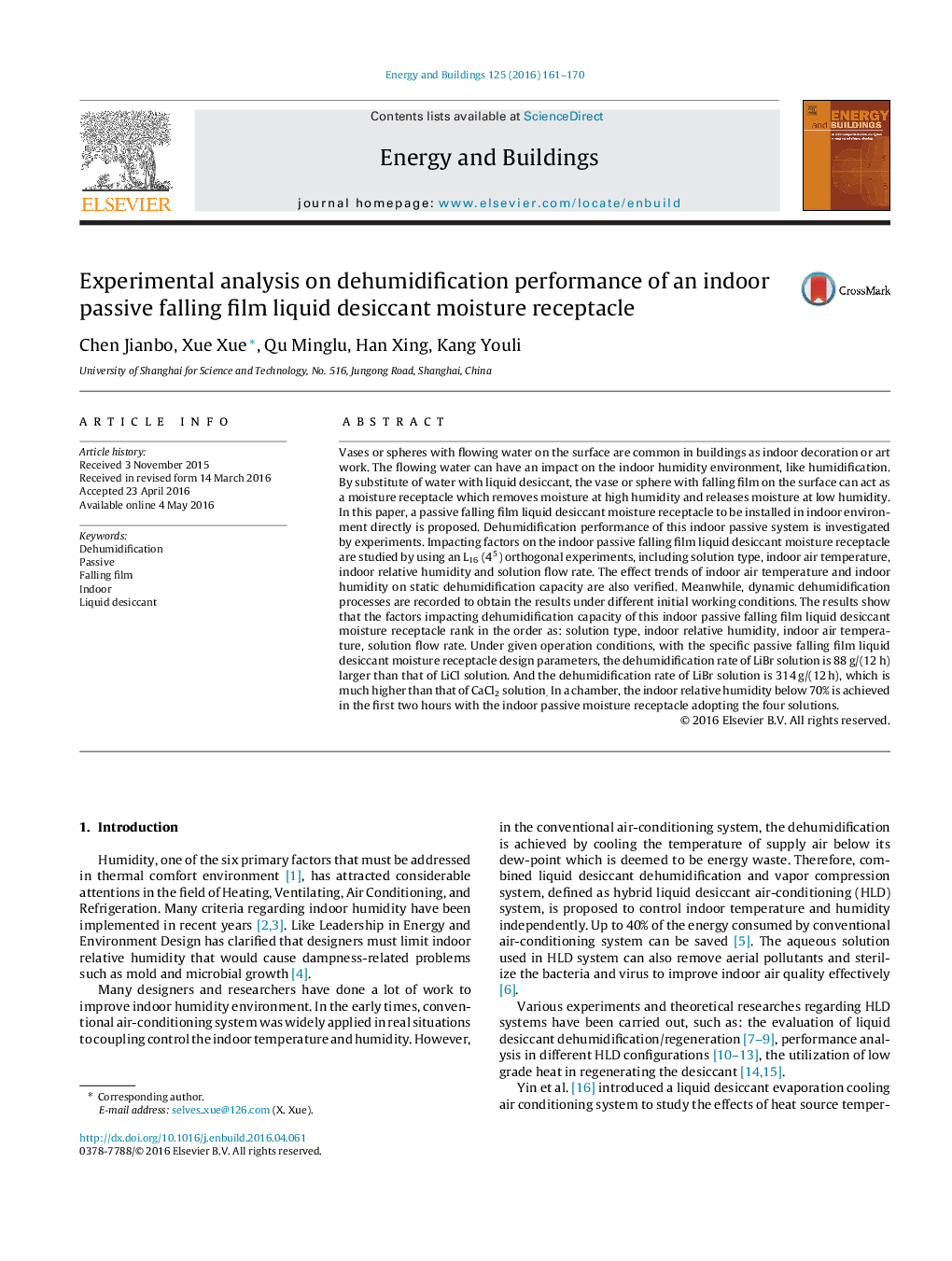| کد مقاله | کد نشریه | سال انتشار | مقاله انگلیسی | نسخه تمام متن |
|---|---|---|---|---|
| 6729931 | 504008 | 2016 | 10 صفحه PDF | دانلود رایگان |
عنوان انگلیسی مقاله ISI
Experimental analysis on dehumidification performance of an indoor passive falling film liquid desiccant moisture receptacle
ترجمه فارسی عنوان
تجزیه و تحلیل تجربی در مورد عملکرد رطوبت در مخزن رطوبت مایع خنثی کننده سقوط فیلم داخلی
دانلود مقاله + سفارش ترجمه
دانلود مقاله ISI انگلیسی
رایگان برای ایرانیان
کلمات کلیدی
رطوبت، منفعل، سقوط فیلم، داخل سالن، مایع خشک کن،
موضوعات مرتبط
مهندسی و علوم پایه
مهندسی انرژی
انرژی های تجدید پذیر، توسعه پایدار و محیط زیست
چکیده انگلیسی
Vases or spheres with flowing water on the surface are common in buildings as indoor decoration or art work. The flowing water can have an impact on the indoor humidity environment, like humidification. By substitute of water with liquid desiccant, the vase or sphere with falling film on the surface can act as a moisture receptacle which removes moisture at high humidity and releases moisture at low humidity. In this paper, a passive falling film liquid desiccant moisture receptacle to be installed in indoor environment directly is proposed. Dehumidification performance of this indoor passive system is investigated by experiments. Impacting factors on the indoor passive falling film liquid desiccant moisture receptacle are studied by using an L16 (45) orthogonal experiments, including solution type, indoor air temperature, indoor relative humidity and solution flow rate. The effect trends of indoor air temperature and indoor humidity on static dehumidification capacity are also verified. Meanwhile, dynamic dehumidification processes are recorded to obtain the results under different initial working conditions. The results show that the factors impacting dehumidification capacity of this indoor passive falling film liquid desiccant moisture receptacle rank in the order as: solution type, indoor relative humidity, indoor air temperature, solution flow rate. Under given operation conditions, with the specific passive falling film liquid desiccant moisture receptacle design parameters, the dehumidification rate of LiBr solution is 88Â g/(12Â h) larger than that of LiCl solution. And the dehumidification rate of LiBr solution is 314Â g/(12Â h), which is much higher than that of CaCl2 solution. In a chamber, the indoor relative humidity below 70% is achieved in the first two hours with the indoor passive moisture receptacle adopting the four solutions.
ناشر
Database: Elsevier - ScienceDirect (ساینس دایرکت)
Journal: Energy and Buildings - Volume 125, 1 August 2016, Pages 161-170
Journal: Energy and Buildings - Volume 125, 1 August 2016, Pages 161-170
نویسندگان
Chen Jianbo, Xue Xue, Qu Minglu, Han Xing, Kang Youli,
